ARTICLE AD BOX

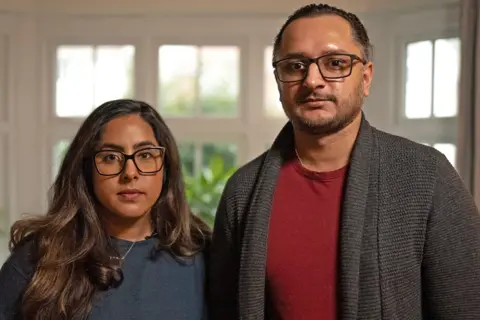 MARTIN MCQUADE / BBC
MARTIN MCQUADE / BBC
Amarjit Kaur and Mandip Singh Matharoo's daughter Asees was stillborn in January 2024
The deaths of at least 56 babies, and two mothers, at an NHS trust over the past five years may have been prevented, the BBC has found.
The two maternity units at the Leeds Teaching Hospitals (LTH) NHS Trust are rated "good" by England's healthcare regulator, but two whistleblowers have told the BBC they believe the units are unsafe.
Separate data shows Leeds has the highest neonatal mortality rate in the UK.
Bereaved parents say they are concerned that the trust's chief executive during the period most of the deaths occurred is now leading the regulator, saying this could affect its independence in investigating LTH Trust.
In a statement, the trust told the BBC the vast majority of births at Leeds were safe, and deaths of mothers and babies were fortunately very rare.
It added that Leeds cares for a higher volume of babies with complex conditions as it is one of a "handful of specialist centres" in the UK.
The trust's maternity units are at Leeds General Infirmary and St James's University Hospital.

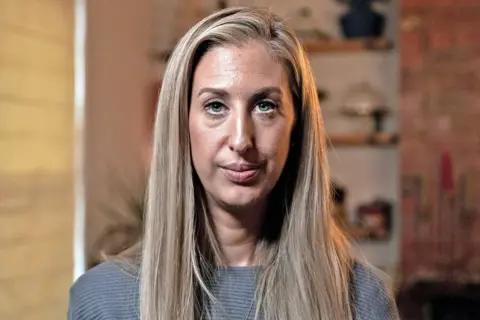 MARTIN MCQUADE / BBC
MARTIN MCQUADE / BBC
A number of "gross failures of the most basic nature" directly contributed to the death of Fiona Winser-Ramm's daughter, Aliona, an inquest found
The families describe a "tick box" and "wait and see" culture at the trust, plus a lack of compassionate care.
This has been echoed by whistleblower Lisa Elliott, who worked at the two sites in 2023. Describing the care as "appalling", she highlighted a failure to listen to patients. "That's when disasters happen, and a lot of them can be avoided," she said.
The families are calling for an independent review into LTH Trust to ensure issues are identified and lessons learned. They also want an independent, judge-led public inquiry to help improve maternity safety across England because of wider concerns about the standard of care.

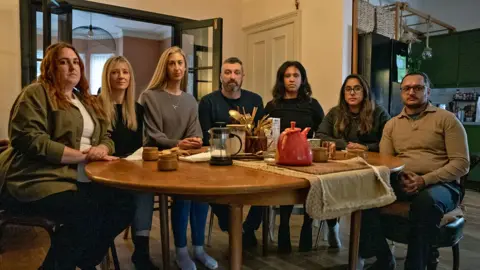 MARTIN MCQUADE / BBC
MARTIN MCQUADE / BBC
A number of Leeds bereaved families found each other via a Facebook group
The BBC obtained data from the trust showing potentially preventable baby deaths through a Freedom of Information request.
This revealed at least 56 cases from January 2019 to July 2024, made up of 27 stillbirths and 29 neonatal deaths - which is a death within 28 days after birth.
In each case, a trust review group had identified care issues it considered may have made a difference to the outcome for babies.
The trust-led reviews were conducted by multidisciplinary teams which regularly included people who did not work for the trust.
The trust also recorded two possibly preventable maternal deaths in the same period.
It did not give any personal details about the 58 deaths, so we do not know whether they include the families we have spoken to.
The deaths reviewed by the trust included babies with congenital abnormalities, and newborns and mothers transferred after birth from other units because they required specialist care.
The trust said the number of neonatal deaths it had recorded as potentially avoidable was "very small".
LTH had the highest neonatal mortality rate in the UK of 4.46 per 1,000 live births in 2022, according to the latest report by MBRRACE-UK - which reviews stillbirths and neonatal deaths but does not analyse if any of these are potentially preventable.
BBC analysis of this data, which was made public last July, shows this increased from 3.30 per 1,000 live births in 2017.
The LTH 2022 figure is 70% higher than the average rate for comparable NHS trusts.
MBRRACE-UK grouped Leeds with 25 other trusts which it says provide a similar level of care. Specifically, they all have a level three (the highest level) neonatal intensive care unit and perform neonatal surgery. The group is complex, with different specialisms.
LTH told the BBC there are an increasing number of complex pregnancies and births in the region - including an increase in babies born with severe cardiac conditions - leading to an increase in the neonatal mortality rate.

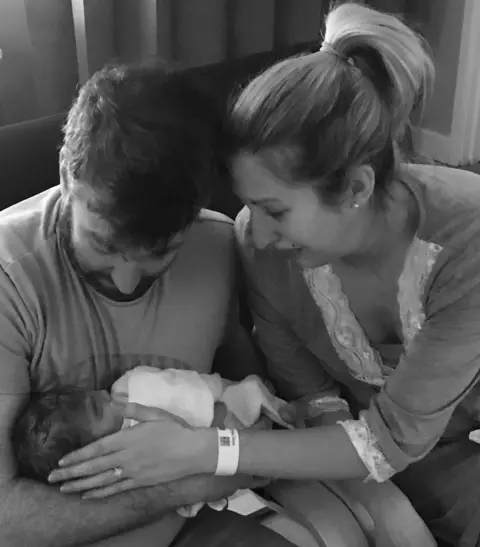 Winser-Ramm family
Winser-Ramm family
Aliona Grace died in 2020, 27 minutes after she was born
Fiona Winser-Ramm and Dan Ramm's first baby, Aliona Grace, died at Leeds General Infirmary in January 2020, 27 minutes after she was born.
There had been delays admitting Fiona after her waters broke and a delay by midwives to escalate concerns with Aliona's heart rate during labour.
There had been a "number of gross failures of the most basic nature that directly contributed to Aliona's death", an inquest in 2023 found.
"Leeds say they've learned lessons, it won't happen again. But it does, and babies keep dying, or being seriously injured, for similar reasons," says Dan.
The couple, who connected with other bereaved parents after setting up a Facebook group, believe there are many more affected.
Fiona and Dan also believe the regulator - the Care Quality Commission (CQC) has failed to hold the trust accountable, despite other preventable baby deaths.
The CQC inspects the quality of services across health and adult social care in England and can prosecute providers who fail to provide safe care.
The couple first raised their safety concerns with the body in November 2020. They say the regulator is not fit for purpose.
They are taking legal action against LTH Trust, but also want the CQC to prosecute it for its care failures.
Fiona and Dan don't think any future CQC investigation into Leeds could be independent with the trust's former chief executive in charge of the regulator.
Sir Julian Hartley led the trust for 10 years, until January 2023, and was in post when Aliona died. He took over the CQC in December 2024.
"There's a huge conflict of interest," says Dan.
We approached the CQC and Sir Julian for comment and the regulator replied on behalf of both saying it was independent, with "robust policies in place to manage any conflict of interest".
It says there are currently no criminal investigations into Leeds maternity services, but it has been in contact with families and is looking into four incidents for evidence for any future legal action.

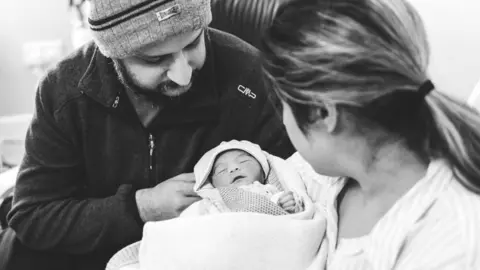 Family photo
Family photo
Amarjit and Mandip believe Asees would have survived had her mother been treated properly earlier
Among the bereaved parents are Amarjit Kaur and Mandip Singh Matharoo, who were expecting their first child to arrive last February.
When Amarjit was 32 weeks pregnant, she went to Leeds General Infirmary's maternity unit twice within 24 hours with severe abdominal pain. She says she was told she was experiencing ligament pain in her torso and was sent home each time with paracetamol.
A few days later, Amarjit underwent emergency surgery and she says a massive blood clot was found, exactly where she had described being in pain.
Her daughter, Asees, was stillborn on 6 January 2024. The couple believe she would have survived if her mother had not been sent home earlier.
"It's been the hardest year of my life," Amarjit says.
A review led by the trust of Amarjit's care identified issues it considered may have made a difference to the baby's outcome.
Black mothers are nearly three times more likely to die than their white counterparts (35.1 per 100,000 maternities), with Asian women nearly twice as likely (20.16 per 100,000 maternities), latest UK figures from MBRRACE-UK show.
Last year, 15.7% of registrable births at LTH were recorded as Asian and 11.8% were black.
Amarjit believes she was treated differently because of her Indian ethnicity.
During her first visit, she says she overheard a white woman being told by midwives that she could "stay as long as you want" because of her pain - but Amarjit was sent home.
"The only difference between me and her was the colour of my skin," she says. "But I was in so much pain I couldn't move."
The trust's review of Amarjit's care said "the concerns about institutional racism have been taken seriously" and escalated to senior management.

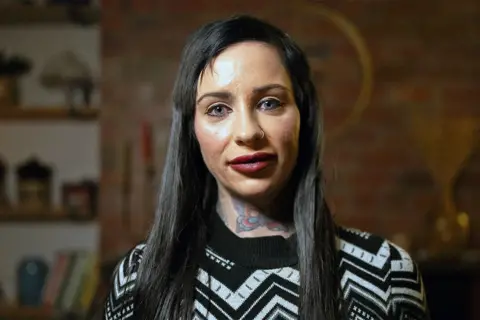 MARTIN MCQUADE / BBC
MARTIN MCQUADE / BBC
Lisa Elliot said she flagged concerns about staff attitudes when she worked at the trust
The two whistleblowers have described unsafe care while working at both of the units.
One experienced clinical staff member, currently at Leeds and who has asked to remain anonymous, told us the service is "completely broken" with chronic understaffing, with the impact being that "women and babies are not getting the care we want them to get".
These concerns are echoed by a former temporary staff member, Lisa Elliott, who says she saw "chaotic" care when she worked approximately 40 shifts as a maternity support worker during 2023. While in this role, supporting midwives in their care of women, she says she witnessed "rude" treatment of patients by staff who showed a lack of empathy.
Lisa, who says she began working shifts in the hospitals in 2020, says she was present for a CQC inspection in 2024, but does not think maternity services should be rated "good". She says she flagged concerns about staff attitudes at the time, but they were not "taken into account properly".
Prof Phil Wood, chief executive of Leeds Teaching Hospitals told the BBC the trust wished to apologise to the women and families who had shared their negative experiences.
He highlighted its status as a specialist centre caring for "the most poorly babies", adding that comparing the MBBRACE-UK neonatal mortality data from LTH with other hospitals, "even in the same specialist category, is fraught with difficulty and is misleading".
Chris Dzikiti, CQC's interim chief inspector of healthcare, said LTH's maternity services have, and continue to be, subject to close oversight.
He added that the maternity services at the two hospitals were inspected last month "in response to concerns raised by families and risks identified through our ongoing monitoring".
The findings from that inspection will be published shortly.
Do you have more information about this story?
You can reach Divya directly and securely through encrypted messaging app Signal on: +44 7961 390 325, by email at divya.talwar@bbc.co.uk, or her Instagram account.

 4 months ago
34
4 months ago
34


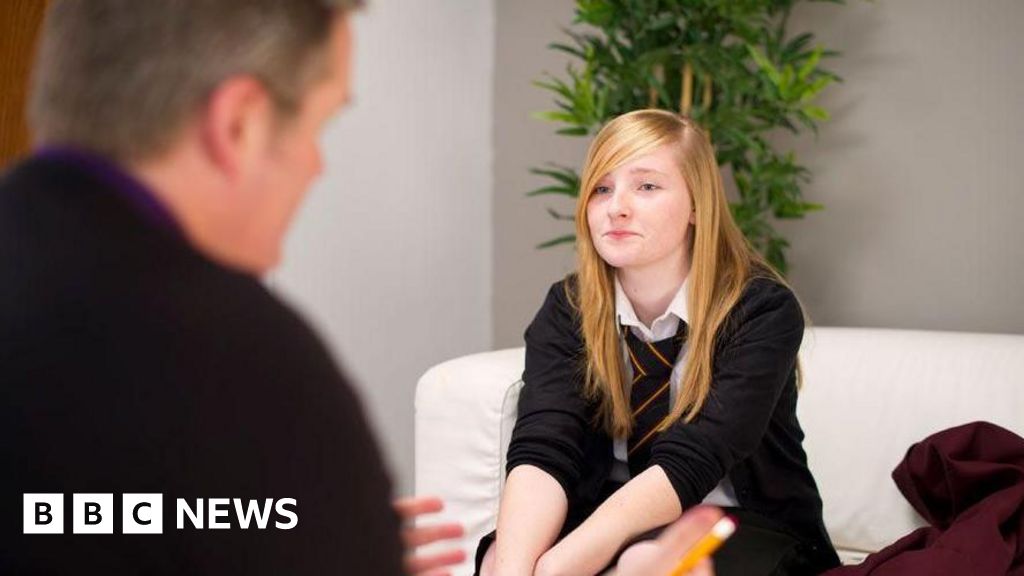





 English (US) ·
English (US) ·